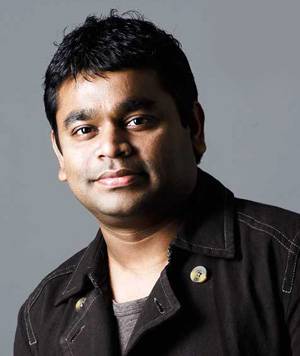Delhi 6
 |
| Cover Art of Album |
The soundtrack album released
amidst the euphoria of Oscar and Grammy nominations, Golden Globe glory and
huge media hype for A.R. Rahman. Each of his release is awaited with bated
breath and high hopes. So, let’s check if the whiz kid of Indian music hits the
money with this ten-track album.
The beginning is pious with
spiritual tracks Aarti (Tumre Bhavan Mein) and Arziyan. The ensemble of female
singers, laces of sitar and the cymbals in Aarti radiate a spiritual aura and a
vision of circumambulations around the inner sanctum of a temple fills the
eyes. The religious fervour is carried forward with Arziyan, a qawwali sung by
Javed Ali and Kailash Kher. During its long duration of 8 minutes and 41
seconds, never does a word go unnoticed or an alaap repudiated. The pickups of
the tablas, the harmonium, subtle guitar laces, the beautiful lyrics and the
skilful execution by the duo- this qawwali is of the same ilk as Piya Haji Ali
and Khwaja Mere Khwaja. Rahman once again stamps his authority with this genre.
Now here are some surprises.
‘Bhor Bhaye’ is a duet featuring Ustad Bade Ghulam Ali Khan and Shreya Ghoshal.
Yeah, you heard it right! Rahman recreates the old song in Gujri Todi raga by
juxtaposing Shreya Ghoshal’s ever-saccharine vocals with Ustad Khan’s dexterous
original rendition. However, Shreya Ghoshal’s voice sounds a little incongruous
in spite of her skilful performance and the track disappoints a bit. If Bhor
Bhaye seems mediocre to you, the title track ‘Delhi-6’ is upbeat and funky.
Tanvi’s stylish rendition, the hip-hop beats, some French lyrics contributed by
Vivienne and Blaaze’s rap all make for a memorable listen.
If you are waiting for that love
song which is an absolute must in a Bollywood soundtrack, Rahman presents a gem in the form of ‘Dil Gira Dafatan’. This Indian classical-meets-Broadway track is packed with a rich
variety of influences ranging from blues to Western Symphony and the multiple
layering of sounds accentuates the mesmerising effect it has on the listener.
Ash King’s mellow vocals, the keyboards, slow strings, bagpipes, Chinese
violins and Chinmayee’s cameo at the end combine to create musical nirvana and
after the five and a half minutes elapse, you will be left yearning for more.
Prasoon Joshi’s writing is top-notch. This is also Ash King’s Bollwood singing
debut.
If you are thinking that the
album sounds too melancholy, ‘Genda Phool’ will change your opinions
completely. A folk song about the love-hate relationship of a girl with her
in-laws, Rekha Bharadwaj (Vishal Bharadwaj’s wife) starts off with her rustic
vocals and the song sounds pretty normal till the wicked beats make their way.
Things then go berserk and the bass, wah guitar and drum beats play alongside
the folksy tune to make a highly enjoyable number. ‘Hey Kaala Bandar’ is as
crazy as its name. Old tunes have been reused and this is probably a hangover
from the Ghajini and Yuvvraaj soundtracks. The bridge is grotesque and the rap
is utter balderdash. The pastiche includes some parts of
‘Behka’ from Ghajini and ‘Dil Ka Rishta’ from Yuvvraaj and the track is
outrageously bizarre to say the least. Do not miss it for its sheer shock
value!
Mohit Chauhan rediscovers himself
with ‘Masakali’. This song is about a pigeon and was initially not to be
included in the film. It’s hard to believe that this is the same man who sang
‘Tum Se Hi’ from Jab We Met. The no-holds-barred singing, a quirky accordion
solo credited to A.R. Rahman himself and the catchy bassline form the
ingredients of this instant hit. It is, according to me, one of Mohit Chauhan’s
best works. Next up is ‘Noor’, a short poem penned by Prasoon Joshi and narrated
by the stellar Amitabh Bachchan. Joshi talks about finding the Higher Lord in
our hearts rather than idols or images and advocates love for humanity
irrespective of religion.
Rahman saves the last and the
best for himself in ‘Rehna Tu’. He delivers the song with high-pitched passion
and Benny Dayal and Tanvi Shah provide soothing backing vocals. The song is
about loving your dear ones for what they are, disregarding their miniscule
blemishes. The lyrics are truly beautiful, some of the best I have heard in a
long, long time. The song dishes out a potpourri of sounds- lounge beats, some
heavily programmed sounds, pleasant guitar riffs and of course, Rahman’s
soulful rendition. As the lyrics come to an end, Rahman takes the song to
another high with his continuum fingerboard solo in which he tweaks an Indian
raga along with slow strings playing in the background to synthesise a
one-of-its-kind blissful acoustic experience. Arguably, Rahman’s best of all
time.
 |
| Everyone knows who he is!!!! |
Looking back, this film score is
a chef d’oeuvre and is grossly underrated and overshadowed by the success of
Slumdog Millionaire. If you thought A. R. Rahman was head and shoulders above
his contemporaries, he raises the bar even higher till the connoisseurs simply
go gung-ho. The album is a milestone in Prasoon Joshi’s writing career Lyrical beauty is opulent, the melodies are
haunting and a large variety of themes and musical influences have been
encapsulated by this album. Vintage stuff, highly recommended.
MY PICKS: Justice for all- the
entire album!
INTERESTING FACT: The continuum
fingerboard or the Haken continuum is played by just 15 international musicians
and A. R. Rahman is one of them. The list also includes Jordan Rudess of Dream
Theater!
(Links to the music videos are hyperlinked to the song name)
-- Contributed by Niranjan Thakurdesai